
(Photo by James Atoa/Everett Collection)
Saturday Night Live veteran Molly Shannon’s characters have always been the life of the party. Mary Katherine Gallagher was literally a Superstar; Helen Madden, the joyologist, made everything happier; and Sally O’Malley never let her age (“I’m 50 years old!”) stop her from having a good time. This week, Shannon not only returns as Gail in Netflix’s Wet Hot American Summer: 10 Years Later, but she also helps round out the cast of this week’s Fun Mom Dinner, a comedy about four mothers on a night out that goes hilariously wrong.
Katie Aselton stars in the film as Emily, a new mom at the local school, who is invited out by Melanie (Bridget Everett) and Jamie (Shannon), unaware that Emily is friends with their nemesis, Kate (Toni Collette). As the night spirals out of control, Shannon’s Jamie hits it off with Barry (Paul Rust), a guy they meet at a bar. Shannon spoke with Rotten Tomatoes by phone about her Five Favorite Films and some of her own classic characters.
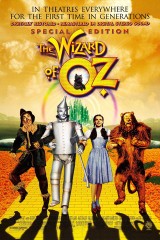
A classic, and I grew up loving Judy Garland, and Bert Lahr is an amazing actor. As a child I watched it over and over again. It just represents the magic of moviemaking. I love how it goes from black-and-white to technicolor. My dad was a big Judy Garland fan growing up, so we would hear all these stories about her and the old studio system, so that’s one of my favorites.

I loved the performances in that movie — Jerry Lewis, Sandra Benhard — and just the way it was directed and written.
And such a different role for De Niro.
He was amazing. Such a different role playing Rupert Pupkin, the standup comic. His mother yells upstairs, “Be quiet.” It was just phenomenal, a brilliant movie.
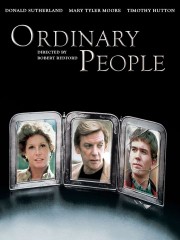
That always sticks in my mind; Timothy Hutton, Mary Tyler Moore. Isn’t it devastating? It was just such an amazing performance by Mary Tyler Moore. I love a great family drama. There’s nothing like it, and Judd Hirsch as the therapist. It was just so beautifully written and sad. I love going to movies and crying and feeling moved and like you’ve changed. It’s one of my favorite things. That’s why I wanted to become an actress. I love dark. I don’t mind sobbing in a theater; I love that stuff. You can grieve parts of yourself and parts of your life through characters in movies. That’s the magic of moviemaking and cinema, seeing yourself in the characters. I loved making Other People too because I felt like people all have different experiences about life and grief, grief and death and family, all these beautiful themes.
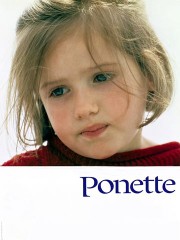
It’s a child’s view of losing a parent. The mother passes away and she comes back as an angel. I think I just saw it in a movie theater. Somebody told me about it and I went to go see it in Pasadena. I went to a matinee. Ponette spoke to me because I lost my mom when I was little.
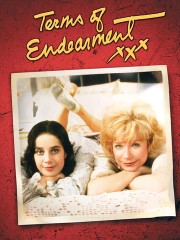
James L. Brooks, amazing writer/director. That’s just a tour de force performance by Shirley MacLaine, Debra Winger. Jack Nicholson when he takes her on that date. It’s just phenomenal.
Fred Topel for Rotten Tomatoes: Is this a really big week for you with Fun Mom Dinner opening and your role on Wet Hot American Summer: 10 Years Later?
Molly Shannon: Yes, I’m really excited. I get excited about everything, so it is a big, busy week. I’m really excited the movie’s coming out and looking forward to people seeing it and Wet Hot American Summer. Because I’m on an HBO show, I can only do a limited number of episodes. I’m not sure what episode I come up in, but I definitely did a couple episodes.
RT: Is there a bit of darkness in a comedy about a divorcee trying to date again?
Shannon: I have a friend who’s my age and she’s dating. I did ask her, “What is it like dating?” I wanted to get her perspective since my character is dating, going on these sites, swiping. My friend said, “Ugh, it’s all a bunch of weary grandpas or Willy Loman depressing salesman guys with jowls.” I thought that was so funny so I told Julie. Julie said, “That’s good,” so we put that weary grandpa line in the script.
RT: People love your characters like Mary Katherine Gallagher and Sally O’Malley. Do you ever think about where they are today and when we might see them again?
Shannon: Oh, that’s so great. I do think about that. Sally O’Malley, it’s funny. I wrote that character when I was 30 years old and she was 50. I like that I aged myself up. I did a very old version of 50. She seemed more like she’s 70, so now that I’m over 50, I feel like she did seem so old. I think, “God, why did she have a limp?” So I would love to do that character again. Jeannie D’Arcy, the stand-up comedian, I miss doing that character. Mary Katherine Gallagher was so physically hard on the show so I don’t miss doing some of that physical stuff. I don’t think I could do the same stuff now that I did then.
Fun Mom Dinner opens in limited release this Friday, August 4.

(Photo by Jason LaVeris/Getty Images)
After close to two decades in front of the camera, most notably in the popular FX drama Sons of Anarchy, Taylor Sheridan turned his talents to writing and penned the script that would become Denis Villeneuve’s acclaimed thriller Sicario. A year later, he earned an Academy Award nomination for just his second screenplay, Hell or High Water, which also nabbed a Best Picture nod.
This week, Sheridan makes his feature directorial debut with another film he wrote called Wind River, which stars Elizabeth Olsen and Jeremy Renner as an FBI agent and a Fish and Wildlife official attempting to unravel a murder in rural Wyoming. Early reviews have Wind River pegged as another triumph for Sheridan, whose knack for gripping crime drama populated by complex characters is quickly becoming a trademark. Sheridan recently spoke to Rotten Tomatoes by phone to give us his Five Favorite Films, though he had trouble settling on a final choice. Read on for the full list.
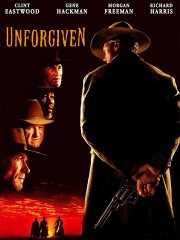
I would say Unforgiven is probably top of that list. What about it, is simply the way that Clint Eastwood demystified and destroyed our notion of a Western. I mean, demolished the genre; he turned it upside down. It was marvelous acting, and at times, his use of monologue and dialogue — that doesn’t ever take place in Westerns. He just took a baseball bat to the genre, and it was just incredibly profound to me. Wildly entertaining. He did things in the storytelling that hadn’t been done in the way that they were done. Incredible.
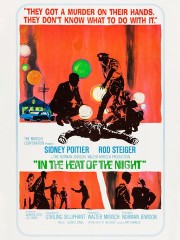
I think In The Heat Of The Night was one of the most influential films on me. Looking back now, I can see how influential it was on my screenwriting, because here you have what looks to be a crime procedural, and it’s actually a study in race and loneliness, and a perception of an era. So, I think that, that was one of the most influential films.
Micheal Mann’s The Insider was one of the most influential films on me. The way that he can build tension with a movie about a court deposition. Just incredible. To study it from a filmmaker’s standpoint, he does things in there, breaking rules, and usually if you’re going to employ a method of camera operation, you’re going to employ that throughout. But there’s one scene where he brings in a steady cam, and he does shots with that thing that are just incredible, and you don’t even recognize that’s what you’re watching, when it’s usually one of the most telling methods of operating a camera, and one I don’t personally like.
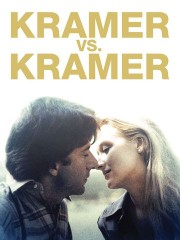
Kramer vs. Kramer is one of my favorite films, where you have a story that really juxtaposes a lot of ideas that we have about family, and about parenting. Again, an incredibly simple plot that allows for really rich exploration of character, and one of the best screenplays I’ve ever read.
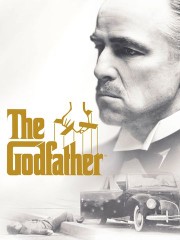
Then, I don’t know… Now I’ve got to start flipping coins. Should I say, The Godfather, or do I say Platoon, you know? Both incredibly influential films on me as well. The Godfather is such an interesting film in that it does a lot of things to establish character in place in a way that’s so economical. You don’t realize that you’re being given information; you don’t realize that you’re learning. It was one of the best-directed films of all time.
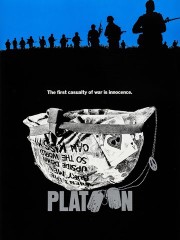
Platoon, I think I was 15 or 16 when I saw that movie in the theater. I was so riveted by it, and the experience around it. I remember when I saw that movie, this is when there was still lines to get in the next one. The movie hadn’t come out yet, and we’re all standing in a line, 400 people to go in, and when the door opened, it was all these Vietnam Vets in their gear, grown men, crying and holding hands and arms around each other. When I sat down, I had no idea what I was about to see. Again, it was a deconstruction of the war film, the antithesis of John Wayne’s The Green Berets.
Ryan Fujitani for Rotten Tomatoes: You’re an actor, a writer, and now a director. Did your experience both in front of and behind the camera help to shape your directorial style on Wind River?
Taylor Sheridan: I don’t think it helped influence my directorial style consciously, as far as, “How do I shoot it?” You’re going to build a cinematic style, there’s decisions you have to make as a filmmaker about, “How do I convey a mood with image?” Where having been an actor was extremely helpful to me, was in casting. That’s where I think a director who has acted can really shine, and casting is the most important thing you do.
I hired people, and a couple of them said, “I can’t believe you hired me. It was one of the worst auditions of my life.” I’m like, “Oh, I’m aware of that, I saw it, but I also saw what I needed to see.”
I can recognize a good actor. I can recognize someone that can convey emotion, and that has the essence, and not get lost in the minutia of, “Well that person’s got red hair and so does the other.” Some of the decisions in casting that seem so important at the time, until you get on set and you’re starting to shoot. I don’t think a lot of times directors who haven’t acted understand that.
RT: Speaking of which, a lot of people are calling this your directorial debut, but I’m seeing that you’re actually credited as a director on what appears to be a horror film called Vile, back in 2011.
Sheridan: [laughs] Yeah. I would say this is my feature debut. A friend of mine raised — I don’t know what he raised — 20 grand or something, and cast his buddies, and wrote this bad horror movie, that I told him not to direct. He was going to direct it and produce it, and he started and freaked out, and called and said, “Can you help me?” I said, “Yeah, I’ll try.”
I kind of kept the ship pointed straight, and they went off and edited, and did what they did. I think it’s generous to call me the director. I think he was try to say thank you, in some way. It was an excellent opportunity to point a camera and learn some lessons that actually benefited me on Wind River.
RT: You’ve written a couple of great films already. Was there a reason why, when you wrote Wind River, you thought, “Okay, I’m going to do this one?” Or was it just a matter of circumstances coming together just right?
Sheridan: This subject matter, I couldn’t trust that someone else would have the same vision for it that I would. I had made promises to people in the native community, that this would be done a certain way, and the only way to guarantee that it was done that way was to direct it myself. I had to go, “Okay, look, even if it’s not good, at least it’s the way I promised I would do it.”
Hopefully, people think it’s good. That’s always the goal, because the aspirations for a bad movie don’t matter, because no one sees that.
Wind River opens in limited release this Friday, August 4.

(Photo by Daniel Boczarski/Getty Images)
As the grandnephew of Alice Coltrane, LA-based recording artist Flying Lotus (a.k.a. Captain Murphy a.k.a. Steven Ellison) draws from a variety of eclectic influences to create his music, a unique blend of experimental jazz, hip-hop, and electronic compositions. Even if his name doesn’t ring any bells, there’s a decent chance you’ve heard his work, whether it was the dreamy track behind a late-night Adult Swim promo or one of his collaborations with the likes of Erykah Badu, Radiohead’s Thom Yorke and Jonny Greenwood, or Kendrick Lamar. In fact, his work on the latter’s album To Pimp a Butterfly earned him two Grammy nominations last year.
But Ellison is interested in more than just music, and this week, he makes his feature film directorial debut with Kuso, a collection of loosely connected post-apocalyptic vignettes that range from the comedic to the horrific, sometimes in the same scene. This is a hard-to-describe film that will divide even audiences accustomed to midnight movie fare. Ahead of Kuso‘s exclusive streaming release on Shudder (and a limited run in LA’s Silent Movie Theatre), Ellison took some time to speak with RT about his Five Favorite Films, and while he gravitated to the ones that inspired Kuso, it was clear his passion for movies runs deep.
Well, first off, I’ll say Beetlejuice because that is my number one movie of all time, period. I know it’s not like no f—in’ Orson Welles s—, but I swear to god, Beetlejuice was, to me, the greatest movie ever made. It’s amazing, and it’s so fun. It’s so fun and it ages well.
You know, watching it as a kid was great, and as you get older you’re like, “Oh these were some dirty jokes in here.” I remember I loved it then, and then I got high and saw it, and I was like, “Oh my god! Dude, what the…” It was amazing.
I’ve never tried that. That’s something to put on the bucket list.
Oh yeah, yeah, yeah. Watch Beetlejuice stoned, for real, if you never have. That movie is f—ing awesome. It’s so original. It’s so original. There’s nothing like it.

Funky Forest. It’s a Japanese movie. It’s kind of like a patchwork film, kind of like Kuso is, in a way. I think it was heavily influential in just like, “OK well, it doesn’t all have to be … It can feel more like a short film, but in the same world, in an absurd world.” I think it was really, really inspiring for me. It had a lot of body comedy in that movie, a lot of really cool prosthetic effects that mixed with CGI, I think. It’s one of the movies where people will just be like, “What the f— is this? What is this?” And it’s not perfect movie, but it is, at times, perfect.
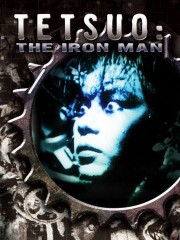
Another one is Tetsuo: The Ironman, directed by Shin’ya Tsukamoto. To me that’s up there. That’s up there for me. I’d say the whole Tetsuo series, just because it’s such a beautifully handcrafted movie. You can tell there’s so much in it. I love that kind of, you know, like the early Tim Burtons and the David Lynches and all that stuff. There’s something about this Shin’ya Tsukamoto stuff. It was just at the perfect time when cyber-punk — what cyber-punk looked like — he was one of those people kind of establishing that.
And whether people know it or not, Tetsuo: The Ironman was just hugely influential on everything, on sci-fi after that. It became like a design resource for everybody f—ing with sci-fi. You know, people have seen these images without even knowing the movie. It’s really, really awesome. I just think about it still, like, “How did they do that with no money, really? How did they pull this s— off and build these amazing effects?” They had to redub all the audio because there was no audio when they filmed it. There were a lot of elements against them too, but they pulled it off and it’s still just so amazing. I just hope to do a fraction of that with my own film.
Having finished Kuso, you must kind of know what that feels like, right?
Yeah, I get it. I get it. I get it to an extent, you know? But I think in their case, they had a lot less people to count on, and I think they had more elements against them. I think the one thing that I’ve learned about this s— so far is you just have to use what you’ve got, because it ain’t gonna be easy. So what do you have around you? There it is. There’s the movie. Especially when you have no money, you know? Know your world.
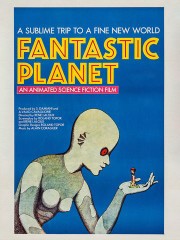
We can throw in Fantastic Planet, La planète sauvage. We can throw that in there. The cut-out animation style, the psychedelia of it. I think it’s such a hypnotic piece of work, and I loved it ever since I heard the samples of the movie. I heard the samples before I saw anything. Madlib sampled that s—. I was like, “What is this animated movie?” So I credit him for me hearing about this, and I have just been on it ever since. I own some of the original cut-outs of the movie that they did. I buy some weird little pieces of art sometimes, but that is one of my prized possessions right there. You know, bits of little movie history.
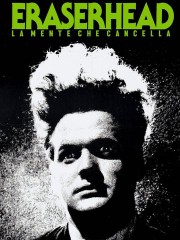
What kind of a–hole would I be without giving David Lynch some love, but I can’t figure out which movie I’d pick of his. I think I’ll have to say Eraserhead in this case, because it was his movie where he put all of himself into it, you know? Every little bit of what he could do on his own, he did it, in terms of designing things and building things and whatever he actually could do and put forth, he put in this movie. He gave it all that energy. I don’t know how many times I’ll be able to do a Kuso, just energetically.
If I had to make another movie, I probably would not go as far as I did this time on my own, because it took so much energy and took me away from a lot of things. I’m sure it was like that for him, too. By the time he got to Blue Velvet, he got people who have his style worked out, what things he likes. He didn’t have to try to design every little aspect of it. Then he did, and that, to me, is something that resonates with me. I listened to the making of Eraserhead while making my movie to just kind of keep me inspired.
Ryan Fujitani for Rotten Tomatoes: As someone familiar with your work, it’s always been clear to me that you have this deep, eclectic knowledge of music, so it’s interesting — and maybe not surprising — to find out that it’s the same for you with movies, as well. I’m wondering, when did that start? Where did that come from?
Steve Ellison: I don’t know man. I’ve always been a fan of films. I went to film school too, you know, and I was really gung-ho about that for a while, but then I was making music on my own, and that was way more appealing because I didn’t need a whole crew to do it. I could just do it on my own at the time. It was like, “Well s—, I’m gonna miss this History of Film class to go and make some beats.”
And it just kept happening. It kept happening. I always said I would go back and make films if I could, if I made enough money in music and all that. I just hit this point where I’d done so much stuff in music — I f—in’ got a Grammy nomination and all this stuff — and I was like, “What else am I gonna do, man? I’m not gonna just go back to the drawing board after losing a Grammy to Justin Bieber.” [laughs] You know what I’m saying? I’m like, I need to challenge myself and go back to school. So that’s kinda what I did in my own brain. I was studying heavy after that.
But yeah, man. I do love it, and that’s something that… I get the feeling that a lot of people will hear about me making a movie and they’ll be like, “Oh, he’s just trying to be whatever,” but I actually care about this s—. It’s not like a vanity f—ing project. I hope people see that in the movie.
RT: When you first started making music as Captain Murphy, you remained pretty anonymous, and clearly that’s not the case with Kuso. Was there initially any thought to being anonymous as a director, too?
Ellison: Kinda, kinda. That’s why it says “Directed by Steve.” Initially I really wanted to just do it without having to bring Flying Lotus into it, but it hit a point where I was just… The first half of the production, nobody knew I was making the movie. Nobody. Just my friends. It wasn’t in Variety or Deadline. We were just working, chipping away at this thing and calling it like little short films. We were just chipping away at this thing and no one knew.
Then I just hit a point where I f—ing just needed more help, man. I knew I could get more help if I started reaching out to people publicly and using what I had. So I had to do it. It was just too hard. I did want to just do it anonymously and take the pressure off of myself in a way, and just have a clean slate in this field. But it became too difficult.
RT: So circumstances forced you to relinquish that anonymity.
Ellison: Yeah, yeah. Because I liked the idea of just having a bland name, like just “Steve.” It’s my real name, but it’s the most boring name of all time. I was like, “That’d be great if that guy directed the craziest s—.” That’d be f—in’ hilarious.
RT: Right, like, “Who is this guy?”
Ellison: Yeah, “Who the f— is Steve?” I was like, “Maybe I can make that name sound terrifying.” [laughs]
RT: So, I read somewhere — I think it was an Okayplayer interview — that the original name for the first track on your album You’re Dead! was “Jodorowsky.”
Ellison: Yes, yeah. Wow, yeah, good call.
RT: So, having seen Kuso, it’s clear to me you’re a fan of the director. I’m wondering how much of an influence he was on you in general and maybe on the film itself.
Ellison: He’s hugely influential on my stuff, and unfortunately, I couldn’t shout him out in my top five. Just in terms of, like, even his comics. I think I’m a bigger fan of a comic of his that’s never been filmed than The Holy Mountain and all that. Metabarons — it’s this comic he did that’s kind of like… It’s like Dune meets The Fifth Element meets Star Wars. It’s amazing. Not a lot of people f— with it.
RT: That’s not the one he did with Moebius, right?
Ellison: No, it’s not Moebius. I don’t think Moebius did this one, but it feels like that. It’s got that vibe. That’s like The Incal; I think he did that and another one. But this s—, it feels like that, but it’s f—ing Star Wars deep, the world of it. To me, Metabarons, I want to f—ing make that movie, right? If I can keep doing this s— and they start giving me budgets, I’ll make a Metabarons movie and it’ll be f—ing awesome.
I met Jodorowsky the other day in New York and that was huge for me. At the end of my promo cycle in New York, I got to meet him, and he gave me his blessing. That was really special to me, after having done this.
RT: Did he get to see Kuso?
Ellison: Nah, but we’re gonna get him a link, though. He’s gotta see that.
RT: Did he know who you were when you met him?
Ellison: No, he didn’t know who I was. He didn’t know who I was, but we got to chop it up for a minute. We have the same publicists in New York. They were like, “Yo, you’ve got to meet him.” So they made it happen. It was awesome. It was a real brief encounter, but for me, it felt like my reward for having done this s—. Going through the trenches making a movie, you know? It was really special.
RT: If someone were to ask me to summarize Kuso, I’d have a really difficult time. When you were pitching this out to the people you collaborated with, how did you describe it to them?
Ellison: I would just say it’s f—ing crazy, this project — you know, experimental horror comedy thing. What I would do, though, is every time I would work on some s—, I would kinda make little highlight reels of the movie to illustrate the point to someone who I wanted to get interested in the movie. Like, “You can watch the first 15 minutes of Kuso, and then if you want to be involved, at least you know where we’re going. This is where we’re at, if you want to be down with it.” I had to do that quite a bit. A lot of people were scared of me, you know?
So I made little mini-trailers, and then eventually it was, “Alright, I’ll show you this short film,” like Royal, for example. I would show them that, and then it was, “As part of this world, what do you think?” It made it a lot easier.
RT: One last question. I’m half Japanese myself, so I know what “kuso” means, and I’m curious about the choice of making that the title. Obviously there’s a thematic relevance to the film, but is there a reason why you chose that title, and why you chose it in Japanese?
Ellison: Well, first off, I knew I was treading in these waters, so I did want to show love to Japan, you know? I wanted to show love to Japan, and I tried to in all the aspects of this movie. I tried to give a little nod to the country I love. But it started off as me wanting to find a name for this character. His last name was supposed to be Kuso, so it made it simple. I don’t know how it came about, I really don’t, but it just stuck. For a while I had different names for the movie, like I was thinking it was gonna be called Yo Ass Ugly. [laughs] For a long time that’s what I was thinking. I was like, Yo Ass Ugly. There were other titles too, but I just kept coming back to Kuso because it was one word, to the point, it was a good way to summarize everything.
RT: Maybe it’s just me, but it kind of has a mystical quality to it, especially if people don’t know what the word means.
Ellison: It does, it does! Yeah, exactly, yeah. It’s awesome, and you can get away with it. You can get away with saying it. [laughs]
Kuso will be available exclusively on Shudder on Friday, July 21, as well as a limited run at Los Angeles’ Silent Movie Theatre.

(Photo by Priscilla Grant/Everett Collection)
Over the course of six seasons, Steven Yeun became a fan favorite as Glenn Rhee on AMC’s megahit series The Walking Dead, but the Korean-American actor (and new father) has also been providing voice work for a couple of well-received Netflix original animated series (Trollhunters and Voltron: Legendary Defender). With this week’s streaming release of Bong Joon-ho‘s Certified Fresh Okja, Yeun continues his successful relationship with Netflix — and he got to work with one of the directors who inspired him to begin acting in the first place.
Rotten Tomatoes spoke recently with Yeun, who gave us his Five Favorite Films, talked about the new movie, and reflected on what made TWD‘s Glenn so relatable. Read on for his list.
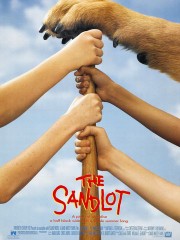
I’m gonna be so judged for this, but The Sandlot is a pick for me. Top five. I had the privilege of listening to a Frank Darabont conversation earlier on during The Walking Dead, and he kept on talking about this “magic window” — I think it’s from maybe ages 10 to 12 — when you watch a movie, and it moves you. It just becomes one of the greatest things in your life for the rest of your life. The Sandlot was that for me.
You can watch that movie again and that movie is perfect. I mean, it gets trashed on, maybe, by adults because people think it’s for kids, but that movie’s amazing. Every single one of those child actors were incredible in it, the narration was awesome, Denis Leary’s in that movie. There’s so many amazing people that were part of it, and it was just a rinky-dink kids’ baseball movie, but it meant so much.
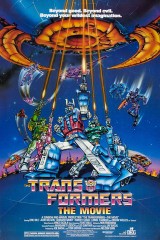
Transformers, the animated movie.
Is it the same case for this one as it was with The Sandlot?
Yeah, I think it is. It’s that, and it’s also that, as a kid, the film actually took me seriously, you know? It took me seriously as a viewer. It wasn’t like, “I’m just gonna zone you out for an hour and a half, or two hours.” It was like, “No, by the way, your favorite hero? He’s gonna die. And then he’s gonna try to pass the torch, but he’s not meant for that. And then, I’m gonna show you what it’s like for planets to be destroyed, for people to have terrible notions of who they are and what they want to become, or other people who don’t think that they are something, but they really have something great to offer.”
That movie was awesome. And it was so weird, too. Like, this is for kids? I loved that movie.
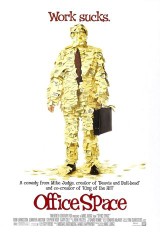
Office Space, for me, was a college joint. It was the movie that was on in the background 24/7. We watched that movie in college my freshman year maybe 40 times, just quoting the lines. Also, it was an interesting meta way of telling us what we were actually heading towards, if we didn’t choose wisely in college, you know? It’s funny to me, watching it in college when you have no real reason to find the jokes funny because you have no context for that — you don’t work in a cubicle, so how would you possibly know? But there was just something so real about following the droning path that isn’t what you’re meant to be doing, and I think that was the thing that really resonated, but we didn’t realize it because we were busy getting drunk.
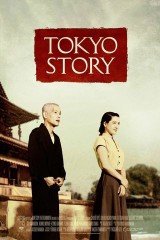
Tokyo Story is fantastic. You could throw any Ozu film in there. Good Morning is also up there — it’s top six. I think what I love about Ozu is, especially in Tokyo Story, just the simplicity of the depth of the seemingly mundane life. We always try to add some zest to our lives, especially in films that we see now that are like, “Let’s talk about the most complex issue that we have in our lives, and that’s what makes this movie so interesting.”
But Tokyo Story was an exploration of, “This is what is, and this is what everybody universally feels.” There’s that one moment when the daughter-in-law explains to the youngest sister, “This is just what is. This is life.” And the tone in which Ozu explores the loneliness that this man is going to feel, now that his wife has passed — he just ends it by saying, “You’re going to be very lonely,” and he just says, “I am.” And he just contemplates his life further from that point on.
It’s just… To me, it was one of the first films where it showed me that you don’t need to crack out a movie. You can show people the truth. Just show people the truth, and he was so good at that.
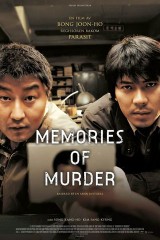
Memories of Murder, and I don’t say that because of Okja. I say that because that’s why I wanted to be an actor. Memories of Murder is one of those things where you’re watching so many things at once. For one, you’re watching the second installation of a genius director, and you’re witnessing his full genius. The way he composes his scenes, the way he composes his frames, the deliberateness he has in his execution, the way he directs you to watch things and the way he directs the audience to notice things or not notice things, the way he builds suspense… He just does a lot of things that are incredible as a director.
But then, it’s also kind of people’s first taste of Song Kang-ho, and goddamn, that dude’s so good. It was just like watching a master director also work with master actors, but also watching a master actor do his thing.
Ryan Fujitani for Rotten Tomatoes: Speaking of Song Kang-ho, considering how often he’s collaborated with Bong Joon-ho, were you disappointed you didn’t get to work alongside him in Okja?
Steven Yeun: Well, that would have been awesome. But I also think that’s a testament to director Bong, that it’s not about him kind of just putting in people that stars or people like, but rather he’s very thoughtful in his casting, and if it doesn’t fit, it doesn’t fit.
RT: So how was it to actually work with Bong Joon-ho?
Yeun: It was amazing. He’s exactly what I thought. Not exactly what I thought he’d be, but the details were exactly as I thought they would be. He really dives into the nuance of everything that he’s putting into frame. You know, you’re getting a frame-by-frame shot list, a storyboard of what the movie’s gonna look like, and in some respect, someone might look at that and say, “Wait, you want me to stand here? So you’re limiting me as an actor?” But in reality, it’s actually more freeing, because if anything, all he’s doing is saying, “Trust me. I’m putting you within these parameters but you’re allowed to do anything you want within these parameters.” So it’s kind of a really freeing journey to take. You kind of can’t do wrong because he wants you to be there.
RT: In the film, you play the role of an interpreter, and I’ve seen the videos of you and Conan O’Brien in Korea, but what’s it like to really get to flex your Korean skills? Do you speak it fluently?
Yeun: I do speak it fluently. My pronunciation is probably pretty decent. For this role, I actually had to make my pronunciation worse, which was the fun part. It was kind of an exploration with [my character] K into the world of what an Asian-American person might go through, or any immigrant. Like, he feels like he’s a part of the society that he’s representing, which is America, but America doesn’t necessarily see him in that way sometimes, and when he goes back to the place where everybody looks like him, they don’t understand what he’s saying. So K’s kind of on his own island, and it gives him a lot of motivation to do the things that he does. It was really fun.
RT: What was it like for you, to be working on a film in Korea?
Yeun: It was awesome, man. It was a really, really transformative experience for me, because I’ve been to Korea before — I was born in Korea, but I’m fully, fully American at this point. To go back and be at the same age that my father was when he and my mother were there, right before they immigrated, was kind of like this weird, shoe-filling feeling, you know? That was really bizarre.
And also, K is obviously the interpreter in the movie, but in that way, I had to interpret for the cast as we moved along, and when we were down, when we would go out to eat, they needed me to navigate. It was a very meta experience. There’s a weird feeling. There’s a buzz. It feels like you’re connected to some sort of mothership, in a way.
RT: So, South Korean cinema has found a much larger global audience, thanks to people like Bong Joon-ho, Park Chan-wook, and Kim Jee-woon, among others. But something I’ve noticed is that, even in the darkest films — things like Oldboy or last year’s The Wailing — there’s always an element of wackiness, this uniquely Korean sense of humor that sometimes results in jarring tonal shifts but they somehow still work.
Yeun: Yeah, I know what you mean.
RT: It looks like Okja has some of that as well. Why do you think that’s so common?
Yeun: I don’t know if I can necessarily speak at this point, with kind of limited thought on it, about why that might be, but it is interesting to explore. It could be the fact that, as a culture that is a very collectivist society and in some ways is very repressed, to a degree, it could be a little steam valve that releases a little bit of tension for the audience.
The Wailing, to me, is f—ing terrifying. That movie is awesome, so good. But I was not as scared watching it, because they allowed me to see the humanness of what was going on. If anything, actually, now that I see that, I think humor, in the way that they subtly do that, allows you to actually connect with it more, because it makes it much more real, right? Like that pudgy old, s—ty police guy is going to go defeat the demon, and he throws a bunch of shovels in the back of his truck, or a pickaxe or something dumb — you know, whatever they have — and that’s not a joke. That’s just actually probably what would happen. If anything, it colors a portrait of it being much more grounded, to a degree.
Yeah, I think that’s maybe it, you know? Maybe Korean cinema as it stands loves exploring the fact that life is everything, that life isn’t just a comedy or a thriller or a horror. It’s all of them.
RT: Korean films do seem to blend disparate genres in ways that a lot of Western films generally don’t.
Yeun: Yeah, I mean, you look at something like Secret Sunshine. Lee Chang-dong, that guy is such a brilliant filmmaker that’s really working off of very subtle, really grounded performances. But then you get Song Kang-ho in that movie, and you’re like, “He’s not doing anything that’s not real. That’s an actual guy. I’ve seen that guy.” But man, he does it so well that you can’t help but laugh, because it’s so silly, you know? Honestly, to me, that was his best performance ever.
RT: Since I’ve got you, I have to ask about The Walking Dead. One of the other editors here told me, “Oh man, when they killed Glenn, I was done with the show,” and then literally stopped watching after that episode, because he was such a big fan of the character. I’m wondering if you encounter other people who feel that way, and if so, what do you tell them? How do you convince them to stick with the show, if you do at all?
Yeun: Yeah, you know, that’s very flattering. Is he Asian-American or Asian?
RT: He is not, no.
Yeun: I think that’s the coolest part. I think Glenn kind of sneaks up on people. Not to say that people reject him at all, but people don’t really understand why they feel the way that they feel, and maybe the reason why they’re so disgusted is because that does sneak up on them. You know, you don’t realize the connection you’ve made with a character that is probably more in line with a clear window into connecting with a character. I think the other characters are more to be awed, to wish to be like, you know? Glenn was kind of the one that you could just parallel yourself to. So, in that way, I can see the feeling. I can see why someone whould be like, “I’m done,” because it essentially killed you off the show, right?
But what I will say in response to that is, that’s also the beauty of that death, that it catapults the show into another era, because we finished telling the story as it is, and now we’re gonna tell it in a different, new, fresh, and exciting way. And what I will say is that Scott [Gimple] is truly, truly a thoughtful person, and I think a lot of people have their judgments on how they would have done something, but I think Scott, of all people, is someone that lives a couple steps ahead of a lot of others. So it will be fascinating to see what people think when they return and review what we’ve witnessed with that show.
Okja will be available on Netflix on Wednesday, June 28.